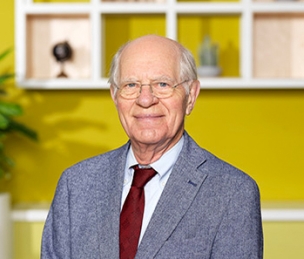Displaying 1 - 8 of 8
-
Levelt, W. J. M. (2019). How Speech Evolved: Some Historical Remarks. Journal of Speech, Language, and Hearing Research, 62(8S), 2926-2931. doi:10.1044/2019_JSLHR-S-CSMC7-19-0017.
Abstract
The evolution of speech and language has been a returning topic in the language sciences since the so-called “cognitive revolution.” -
Levelt, W. J. M. (2019). On empirical methodology, constraints, and hierarchy in artificial grammar learning. Topics in Cognitive Science. doi:10.1111/tops.12441.
Abstract
This paper considers the AGL literature from a psycholinguistic perspective. It first presents a taxonomy of the experimental familiarization test procedures used, which is followed by a consideration of shortcomings and potential improvements of the empirical methodology. It then turns to reconsidering the issue of grammar learning from the point of view of acquiring constraints, instead of the traditional AGL approach in terms of acquiring sets of rewrite rules. This is, in particular, a natural way of handling long‐distance dependences. The final section addresses an underdeveloped issue in the AGL literature, namely how to detect latent hierarchical structure in AGL response patterns. -
Greenfield, P. M., Slobin, D., Cole, M., Gardner, H., Sylva, K., Levelt, W. J. M., Lucariello, J., Kay, A., Amsterdam, A., & Shore, B. (2017). Remembering Jerome Bruner: A series of tributes to Jerome “Jerry” Bruner, who died in 2016 at the age of 100, reflects the seminal contributions that led him to be known as a co-founder of the cognitive revolution. Observer, 30(2). Retrieved from http://www.psychologicalscience.org/observer/remembering-jerome-bruner.
Abstract
Jerome Seymour “Jerry” Bruner was born on October 1, 1915, in New York City. He began his academic career as psychology professor at Harvard University; he ended it as University Professor Emeritus at New York University (NYU) Law School. What happened at both ends and in between is the subject of the richly variegated remembrances that follow. On June 5, 2016, Bruner died in his Greenwich Village loft at age 100. He leaves behind his beloved partner Eleanor Fox, who was also his distinguished colleague at NYU Law School; his son Whitley; his daughter Jenny; and three grandchildren.
Bruner’s interdisciplinarity and internationalism are seen in the remarkable variety of disciplines and geographical locations represented in the following tributes. The reader will find developmental psychology, anthropology, computer science, psycholinguistics, cognitive psychology, cultural psychology, education, and law represented; geographically speaking, the writers are located in the United States, Canada, the United Kingdom, and the Netherlands. The memories that follow are arranged in roughly chronological order according to when the writers had their first contact with Jerry Bruner. -
Levelt, W. J. M. (1992). Accessing words in speech production: Stages, processes and representations. Cognition, 42, 1-22. doi:10.1016/0010-0277(92)90038-J.
Abstract
This paper introduces a special issue of Cognition on lexical access in speech production. Over the last quarter century, the psycholinguistic study of speaking, and in particular of accessing words in speech, received a major new impetus from the analysis of speech errors, dysfluencies and hesitations, from aphasiology, and from new paradigms in reaction time research. The emerging theoretical picture partitions the accessing process into two subprocesses, the selection of an appropriate lexical item (a “lemma”) from the mental lexicon, and the phonological encoding of that item, that is, the computation of a phonetic program for the item in the context of utterance. These two theoretical domains are successively introduced by outlining some core issues that have been or still have to be addressed. The final section discusses the controversial question whether phonological encoding can affect lexical selection. This partitioning is also followed in this special issue as a whole. There are, first, four papers on lexical selection, then three papers on phonological encoding, and finally one on the interaction between selection and phonological encoding. -
Levelt, W. J. M. (1992). Fairness in reviewing: A reply to O'Connell. Journal of Psycholinguistic Research, 21, 401-403.
-
Levelt, W. J. M. (1992). Psycholinguistics: An overview. In W. Bright (
Ed. ), International encyclopedia of linguistics (Vol. 3) (pp. 290-294). Oxford: Oxford University Press. -
Levelt, W. J. M. (1992). Sprachliche Musterbildung und Mustererkennung. Nova Acta Leopoldina NF, 67(281), 357-370.
-
Levelt, W. J. M. (1992). The perceptual loop theory not disconfirmed: A reply to MacKay. Consciousness and Cognition, 1, 226-230. doi:10.1016/1053-8100(92)90062-F.
Abstract
In his paper, MacKay reviews his Node Structure theory of error detection, but precedes it with a critical discussion of the Perceptual Loop theory of self-monitoring proposed in Levelt (1983, 1989). The present commentary is concerned with this latter critique and shows that there are more than casual problems with MacKay’s argumentation.

Share this page